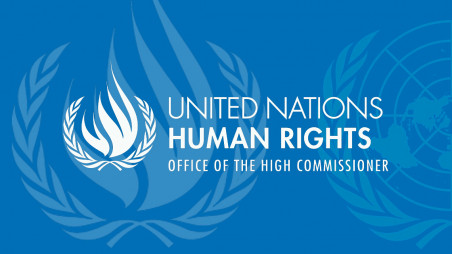Hasina's political comeback in Bangladesh appears slim: International Crisis Group
"The process has not been without critics. In absentia trials are often a source of contention, and in this case, the speed with which the hearings were conducted and the apparent lack of resources for the defence also raise questions of fairness, the group said in a statement

The International Crisis Group today (17 November) said the prospect of former prime minister Sheikh Hasina "mounting a political comeback in Bangladesh now appears very slim. The political repercussions of this verdict are significant."
"The process has not been without critics. In absentia trials are often a source of contention, and in this case, the speed with which the hearings were conducted and the apparent lack of resources for the defence also raise questions of fairness, the group said in a statement.
"These criticisms reflect longstanding challenges within Bangladesh's criminal justice system, which the country's interim government has not done enough to address since it came to office in August 2024. But they should not be used to downplay or deflect from Sheikh Hasina's actions, or indeed those of the Awami League leadership or parts of the security forces," reads the statement.
But as long as she refuses to give up control of the Awami League, the party is unlikely to be allowed back into the political arena, said Thomas Kean, senior consultant and Crisis Group's expert on Bangladesh.
The International Crimes Tribunal-1 convicted and sentenced Sheikh Hasina to death in a case concerning crimes against humanity committed during last year's July-August uprising, which claimed more than 1,000 lives.
She was also sentenced to imprisonment unto death on a separate charge.
A spate of recent bombings and the Awami League's call for a nationwide "lockdown" have put the country on edge as it nears much-anticipated national elections scheduled for February 2026, said the Crisis Group expert.
"The Awami League should desist from acts of violence, and the interim government must avoid heavy-handed crackdowns against party supporters," Kean said.
He said the conviction of Sheikh Hasina for crimes against humanity will be widely welcomed in Bangladesh, where there are few doubts about her responsibility for the atrocities committed against protesters in July-August 2024.
A United Nations investigation already established that the crackdown, which left as many as 1,400 people dead, occurred with the full knowledge, coordination and direction of the political leadership, singling out Sheikh Hasina and one of her co-defendants, former home minister Asaduzzaman Khan, he said.
The trial at Bangladesh's International Crimes Tribunal only revealed further evidence to this end, including recordings of Sheikh Hasina discussing the crackdown and the testimony of the country's former police chief, Kean said.



 Keep updated, follow The Business Standard's Google news channel
Keep updated, follow The Business Standard's Google news channel


















